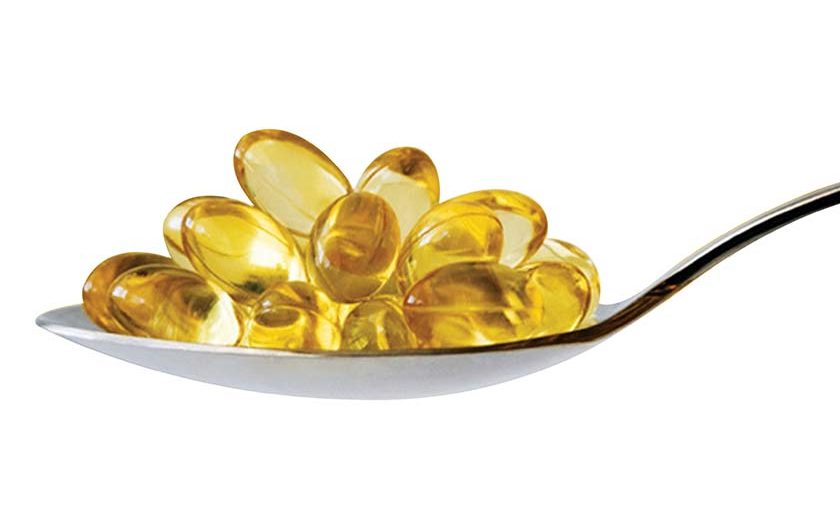Which omega-3 supplement should we be reaching for? Let’s look up the health benefits of fish oil and krill oil.
More people are turning to krill oil for omega 3 nutrition because of its significant advantages over other marine oils. Like fish oils, krill oil is naturally loaded with heart-healthy omega 3 essential fatty acids EPA and DHA. Essential fatty acids support cardiovascular health, healthy cognitive function, joint health and more.
Although research continues to clarify the roles of DHA and EPA, some evidence suggests that DHA may be more important in certain situations, while EPA may be more important in others. Keep in mind, however, that participants in most studies were not eating diets rich in DHA or EPA (i.e., not eating fish at least twice a week) according to ConsumerLab.com.
It’s not clear that any type of fish oil supplement will provide value if you are already getting substantial amounts of EPA and DHA naturally from foods. In fact, in terms of general cardiovascular benefit, it’s pretty clear that you are better off eating fish (not fried!) than taking a supplement. But if you won’t eat fish or other foods rich in EPA and DHA, consider taking a supplement.
Here are some of the benefits which have been seen with EPA and DHA supplementation:
DHA
Pregnancy – DHA is important during pregnancy for normal development of the infant and may decrease premature births. Pregnant women should get at least 200 mg of DHA per day from a supplement or low-mercury fish.
Periodontitis – High-dose DHA has helped improve periodontitis (inflammation around the teeth causing pocketing), although this was not seen with high-dose EPA.
Age-related Cognitive Decline – Studies have shown a modest benefit with a supplement high in DHA. A supplement high in EPA did not have this benefit.
EPA
Depression – Large amounts of EPA relative to DHA may help relieve depression in cases of moderate to severe depression (not mild depression).
Chemotherapy – A supplement providing a large amount of EPA has helped prevent weight loss during cancer chemotherapy.
Anxiety – A supplement high in EPA helped reduce anxiety in students.
Alzheimer’s disease – A supplement containing more EPA than DHA helped slow cognitive decline in patients with Alzheimer’s disease. This has not been seen with supplements higher in DHA. However, no omega-3 supplement can reverse Alzheimer’s disease.
EPA and DHA
Acne – A high-dose combination of EPA and DHA helped reduced the number and severity of acne in men and women.
Strength training – More equal combinations of EPA and DHA have helped improve strength during strength training in a study of older women.
High triglycerides – Very high doses of EPA and DHA from concentrated fish oil can lower triglyceride levels.
Heart health
Omega-3s from fish-oil pills and fatty fish can reduce the risk of heart attacks and strokes, research has found. Both fish-oil pills and krill-oil supplements supply the healthful omega-3 fatty acids DHA and EPA.
With all the marketing material out there, it can be hard to know which omega-3 supplement you should be taking.
The differences between the two
Krill oil
Krill oil is a nutrient-dense substance extracted from a tiny, bottom-of-the-food-chain crustacean that lives in the icy waters around the Antarctic. It is said to provide the same health benefits as fish oil because it is also a rich source of the omega-3 fatty acids eicosapentaenoic acid (EPA) and docosahexaenoic acid (DHA), which are essential to health.
The main selling points for krill oil are that its omega-3s are packaged differently from fish oils, in the form of a phospholipid that is easier for the body to absorb, and that it has the added bonus of containing another essential nutrient, choline, as well as an antioxidant.
The benefits that set krill oil apart
Some findings show that krill oil has a few benefits that may make it a superior omega 3 source when compared to traditional fish oil supplements. Krill oil contains carotenoid antioxidant astaxanthin. Fish oil does not. Astaxanthin is a high powered antioxidant with a molecular structure that makes it very effective at neutralizing free radicals.
According to manufacturers krill oil has better absorption rate – up to 60 per cent – means less capsules need to be taken to achieve the desired health benefits. People taking fish oil for arthritis, for example, may need to take nine to 14 standard capsules a day, whereas, according to krill oil marketing, only one capsule is needed for the same effect.
Those in the krill oil business also say it is a safer and cleaner product because it is sourced from less contaminated waters. From an eco point of view, it seems to depend on where the oil is bought from. Manufacturer of krill oil should demonstrate that the krill is sourced in an environmentally sustainable manner with minimal harm to local ecosystems and limited by-catch.
Have in mind that krill oil supplements could be more expensive than fish oil because of the expensive processes undertaken to ensure quality and eco-sustainability.
 Fish oil
Fish oil
Supporters of the fish oil industry point to the large body of research conducted on the benefits of fish oil compared with the research on krill oil, which both camps say is fairly thin on the ground. For now, fish oil has the backing of many years of scientific research, which shows that it fully deserves all the hype about its health benefits. Many say that fish oil works because of the many clinical trials that show this.
Fish oil and krill oil are both great sources of omega-3 and complement each other. The most important message for now is that you get your recommended daily dose of omega-3s from whatever source there is. If you are taking an omega-3 supplement, check if the oil has the recommended daily dose of 500mg.
Tip: whichever type you choose, look for a reputable brand that follows good manufacturing processes and uses sustainably harvested oil.
Fishy burps?
You may have heard that krill oil doesn’t cause the dreaded fishy burps that fish oil can. This is yet to be confirmed. However, you can minimise the problem by freezing pills, taking fish-oil supplements at the start of a meal, or buying an odourless brand.
Bottom line
More clinical research is needed. Most people can get enough DHA and EPA by eating fatty, low-mercury fish – such as Alaskan salmon and sardines – at least twice weekly.
If you take a supplement, consult a doctor because krill oil and fish oil may interact with some drugs, including blood thinners.
Sources:
www.consumerreports.org
www.bodyandsoul.com.au
www.webmd.com


